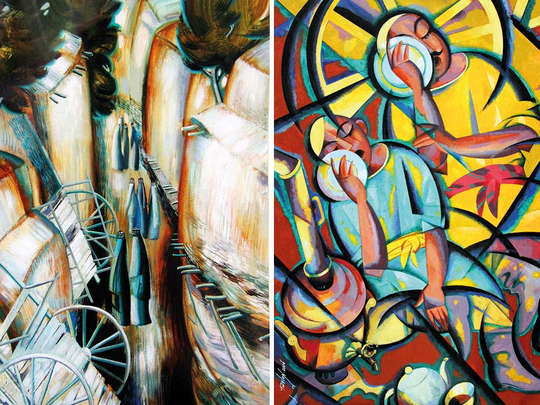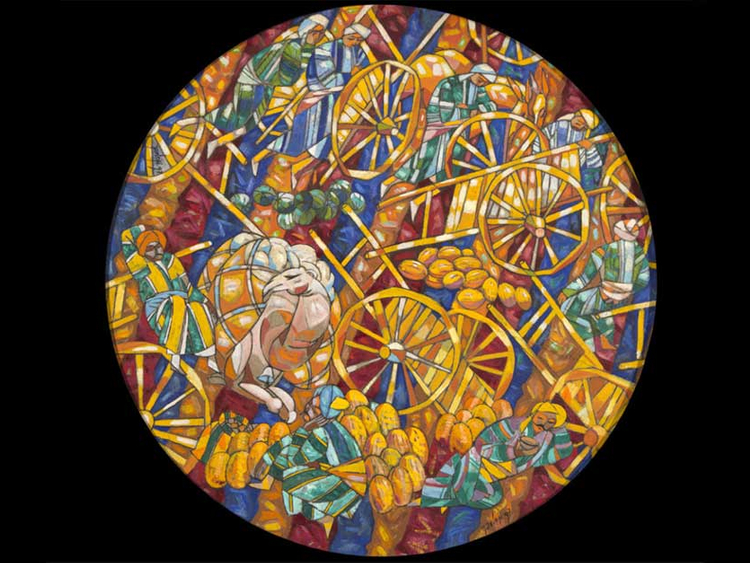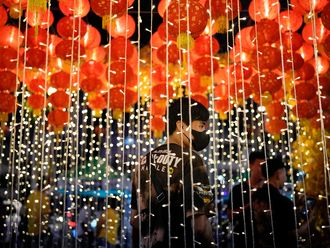
Andakulova Gallery, which specialises in Central Asian art is celebrating the work of Javlon Umerbekov, a pioneer of contemporary art in Uzbekistan with an exhibition titledrb Poetry and Myths of Javlon Umaekov.
The artist was born in 1946 in Tashkent and is a recipient of the honorary title People’s Artist of Uzbekistan. He is known for boldly crossing boundaries and abandoning the rigid norms of the past to create his original interpretation of Uzbek heritage in a visual language that blends Eastern and Western aesthetics.
The show features paintings and drawings from different periods of his career spanning five decades. The different styles he has used range from romantic realism and cubism to abstraction, reflecting his constant search for new ways of expressing himself.
“As a student in Moscow, I was fascinated by the variety of Eastern and Western art I saw in the museums there and did a lot of research on the styles and techniques of different artists. But I have always tried to develop my own individual vocabulary. I have never copied any style or followed any ‘ism’. I just try to depict what I see,” Umerbekov says.
Themes and figures
Although his interpretation of cubism connects his work with the avant garde modernist movements of the 20th century, his themes and the figures in his paintings are rooted in his Uzbek heritage. His subjects are mostly inspired by his childhood memories, but they evoke the collective memory of Uzbeks, making it easy for ordinary people to relate to his compositions.
In paintings such as The Dawn, Endowments and Melody Makers Umerbekov has highlighted Uzbek traditions and craftsmanship such as the hand-embroidered tubetieka (hats) worn by the men, the custom of women carrying handmade gifts for the bride at a wedding, and the wandering musicians that have been performing on the streets for centuries.
Water and women are recurring themes in Umerbekov’s paintings. “Water is a source of life and women represent the continuation of life,” he says.
In a work titled Spring, he has depicted a woman holding a pot of water as a symbol of the regeneration of life; and other paintings such as Aquifer and The Pond are based on his childhood memories of women fetching water from the clear, unpolluted ponds and streams.
His interpretation of the age-old theme of the Madonna and Child shows a woman dressed in traditional Uzbek garments and accessories and surrounded by sacred symbols such as pomegranates and talismans. In a poignant painting, Wings on Swings he has depicted three girls on a swing moving between the two banks of a river, signifying the traditional view that a girl is a temporary guest in her family and becomes part of another family after marriage.
Umerbekov often depicts ordinary hardworking people in his paintings such as men and women working in their fields in Harvest, and artisans repairing a cart on a rough mountain road in Fortune Pass.
Other paintings have been inspired by his travels to cities such as Venice, Samarkand and Algiers, or abstract notions of the endless battle between day and night, light and dark. A motif that appears in many of his compositions is the wheel, symbolising movement and the passage of time.
“My subjects are based on my memories because I believe it is important to introduce the new generation of Uzbeks to our country’s ancient traditions, craftsmanship and cultural heritage that is being forgotten today. At the age of 72, I can say that there have always been conflicts in the world, and I get affected by them like every human being. But, when I began my journey as an artist I promised myself I will never show anything negative in my paintings because life is so beautiful,” Umerbekov says.
Jyoti Kalsi is an arts-enthusiast based in Dubai.
Poetry and Myths of Javlon Umarbekov will run at Andakulova Gallery, DIFC, until March 6.













